#Editorial
Alphabet Soup: 4×4 Vs 4WD Vs AWD Where's the Differential?
Four wheel drive, all wheel drive, 4WD, AWD, full-time, part-time, 4Hi, 4Lo, 4×4. There are many names and just as many ways of motivating every wheel a vehicle has on the ground. What’s the difference between four-wheel-drive and all-wheel-drive? In one word: Marketing. Want to know more? Click past the jump as we dive in the most controversial topic since “Dodge vs Chevy.”
The Truth About Battery Life
The drama circling around the New York Times test of the Tesla Model S doesn’t surprise me one bit. Why? Because I understand, perhaps at a deeper level than most of the motoring press, how batteries work. Perhaps that has to do with growing up in a family of engineers and scientists, but battery technology has always interested me. So when people from Phoenix came to me crying in their soup about their LEAFs in the heat and friends started wagging fingers at Tesla and the New York Times, I figured it was time for a battery reality check.
Blind Spot: Digging Deeper Into GM's Fuel Economy Record
Old habits die hard. Whether it’s GM’s desire to slice-and-dice its fuel economy achievements to make them look better than they are, or our instinct to correct the record, it’s all just a little bit of history repeating.
Blind Spot: Electric Cars And "The Freedom Thing"
Editor’s note: While our erstwhile Editor-in-Chief, Edward Niedermeyer, is on sabbatical, he will continue to weigh in on automotive issues in a (hopefully) weekly column entitled Blind Spot. This is the first installment.
Back in 2008, as the worlds of automobiles and politics headed towards a dramatic collision, the founder of this site and I had a series of conversations about political perspectives on automobiles. Though these conversations were wide-ranging, I kept coming back to the same conclusion: for all of the talk about guns as “tools of freedom,” it seemed to me that cars were even more worthy of the title. After all, most people use an automobile in the pursuit of freedom and mobility every day, whereas guns are (relatively) rarely used to secure individual rights.
But embracing the car’s role as a tool of freedom raises a number of troubling questions, most of them inherent to the very cause of liberty. Though cars make us more free as individuals, we must recognize that it comes at the cost of (among other things) dependence on gasoline, an “addiction” that many now seek freedom from. As new energy sources and mobility concepts become available, citizens will have to navigate a complex thicket of issues as they seek to maximize the freedom that personal mobility offers.
This Is A Blog Post About A Blog Post That Got Someone Fired (Over A Blog Post)
If you saw the video above on Autoblog, accompanied by some tired prose suggesting that you summon some enthusiasm for this, the latest automotive promotion, would you think twice? You might if you knew the person who posted the story, and knew they were being paid to promote said promotion. But how does one actually get an inside look at the gritty world of automotive PR payola? How do you break through the great wall of… what’s that, Jalopnik?
Today, Autoblog writer Jeff Glucker wrote about Nissan’s Britney Spears contest. Trouble is, he’s working for the agency that’s running it.
Earlier this week, [then-Autoblog Associate Editor Jeff] Glucker sent out an e-mail solicitation to several of his contacts in the automotive website world, asking for help promoting a new campaign for the Nissan Versa:
Hey there,
I am working with third-party agency that’s assisting Nissan with a new campaign for the Versa. No, I didn’t lose my job or anything – this is just some side contracting work so I can buy a second iPad or golden shift-knob for my car.
Oh right, you just have to open your eyes.
2011: A DMV Odyssey
[Editor’s Note: This piece, by Eric Peters, has been republished from the National Motorist’s Association blog. It originally appeared at epautos.com.]
Big Brother’s doing a bit more than just watching you these days.
Remember the last time you got your driver’s license renewed? You may recall the procedure for taking your picture was a bit different than it used to be.
Instead of the usual “smile” you might have been told to do no such thing — very specifically. To be as expressionless as possible. And that the system seemed more “high-tech” than it used to be. Instead of receiving your new license on-site, it would be mailed to you in a week or so — from some unspecified “secure location,” perhaps.
You may have been told or seen signs or been given literature explaining that the new way of taking your picture is part of new security measures designed to make it harder for people to manufacture fake IDs (since a driver’s license is the de facto national ID in this country).
But they probably didn’t mention that the pictures — digitized images, actually — were to be downloaded into a new database that uses facial recognition software to “scan” for (are you surprised?) Terrorists — among other things.
Only it’s ordinary Americans who are being terrorized.
Why GM Should Hire Alan Mulally
Alan Mulally should be named Chairman and CEO of General Motors…immediately. The General needs talented executive leadership with experience in the automotive industry. And if you look at the track record so far of GM’s present top management – Lt. Dan and his sidekick Girsky – there’s no reason to believe they’ll do any better tomorrow.
The Shocking Truth About Start-Stop Systems
TTAC has long seen stop-start systems (which turn off the engine at idle) as one of the many common-sense technologies that will continue to improve internal combustion engine efficiency at a relatively low cost. Outside of these digital pages, though, the systems have taken longer to gain awareness in the United States, resulting in the lagging adoption rate pictured in the chart above. Up to this point, we’ve assumed that this can largely be blamed on the EPA test’s unwillingness to acknowledge the urban-driving advantages of stop-start systems, pointing to Mazda’s protests on the matter as evidence that government intransigence was keeping the technology out of the market. But recently Mazda has announced that all of its vehicles will get stop-start as standard by 2015, and Ford has said that it will begin offering the technology on “some” four-cylinder models for the North American 2012 model-year… and the rest of Detroit isn’t far behind. So what’s the deal? The EPA hasn’t changed its test… why are stop-start systems finally starting to trickle over?
Thanks to new research obtained by TTAC from the cleantech investment fund Pacific Crest, we now have a better understanding of stop-start technology, and why we’re actually glad it’s taking so long for the systems to get here.
Ford: Quality Is Job One… Again
I designed TrueDelta’s Car Reliability Survey to provide information an average of ten months ahead of the established annual surveys. Early last December we shared with TTAC readers that ” Early data on the Ford Fiesta is not good.” Then, in early March, we stated about the 2011 Fiesta and the 2010 Taurus that ” Ford does not appear to have tested either model thoroughly enough.” The late February release on the TrueDelta site went a step farther, asking, “Is Ford slipping?” The answer last week from Ford: “Yes, but we’re going to fix it.”
Changing Tides: Can Ford And GM Control 40% Of The US Market By 2015?
The combined market share of GM and Ford will reach 40% of the US market by the end of 2015. Yes, you just read that correctly. That’s a full five percent more share than what they have today, or a gain of just one percent a year. Call me crazy… but recall that Farago and I called the GM bankruptcy way before most industry observers (and certainly before the BoD of Old GM) could see it coming. Long time TTAC readers will also remember my call to buy Ford’s stock in April 2009 when it was trading in the three buck range. So calm those gut-reactions for a few minutes and let’s walk through this.
There May Be 3D In Your Car Before It's In Your Living Room
While 3D has been getting a big push from Hollywood and the video game and television set industries, consumers have not yet wholeheartedly embraced 3D when it comes to home tv. Stereo photos and videos can be visually stunning and emotionally evocative, but for many people 3D is a no-starter because current 3D tv requires using special glasses of one kind or another. It’s possible though, that consumer acceptance of 3D may come from an unexpected area, the automotive sector. While the technology for autostereoscopic, glasses-free, displays exists right now, there are cost, distance, and viewing angle issues that keep them from being currently applicable for home television sets. Those issues, however, may not exist for automotive applications. In fact, 3D technology is advancing so rapidly that cars may present particularly appropriate applications for the current state of the 3D art.
Fiat's 40 MPG Fiction
Yesterday’s release of the Congressional Oversight Panel report on the auto bailout pointed out several fundamental problems with the government’s intervention in the auto industry, all of which stem from what the report termed the “mutually exclusive” goals of the Treasury in overseeing its investment in the industry. But that report focused entirely on the post-bailout management decisions by Treasury, ignoring the decisions made during the bailout itself. And though the White House has, in recent months, redefined its goals in bailing out GM and Chrysler to focus on the improved financial performance of the bailed-out automakers, this is clearly a recent recalibration of its political message. As I pointed out in my latest New York Time Op-Ed,
what Mr. Obama called his “one goal” — having Detroit “lead the world in building the next generation of clean cars” — is nowhere near being achieved.
And, as it turns out, the Administration’s actions in the bailout will inevitably come up well short of that goal in at least one important respect.
Year-End Sales Report: Ford
Only three automakers lost retail market share last year, as the market for new cars struggled back from the depths of “Carpocalypse.” Battered as it was by a recall scandal that engulfed most of the auto media coverage for the first half of the year, Toyota’s 1.2% dip came as little surprise. But with all the positive spin surrounding GM and Chrysler, the bailed-out automakers loss of 1.8% and .6% retail market share was a pretty huge disappointment. Ford, on the other hand, drew a huge distinction from its cross-town rivals, recording the second-largest growth in retail market share of all automakers in the US market, snagging an additional 1.2% of the market. Projecting 2010’s trends forward a year (a speculative exercise, no doubt) Ford would actually surpass GM in terms of retail market share, putting it second only to Toyota (and within spitting distance (.3%) of first place). As the bailed-out automakers lose ground in the battle for consumers (rather than volume), Ford makes a strong case for exempting itself from the “Detroit” pejorative: at least as far as consumer perceptions go, Ford has little in common with GM or Chrysler. Not that there aren’t still trouble spots…
Year-End Sales Report: Chrysler
Chrysler Group’s December sales were up some 16 percent compared to December 09, as the bailed-out automaker finished the year with 1,085,211 sales, a 17 percent increase over last year. But with the overall market steadily recovering, those year-over-year comparisons hardly tell the story, so Chrysler sales boss Fred “I Am Ram” Diaz brought it back to the firm’s five-year plan, saying
Chrysler Group 2010 sales of 1.1 million units are consistent with our sales objective that we presented in our Nov. 4, 2009 five-year business plan. We are extremely proud of the sales strides we made during this transition year. Chrysler Group launched 16 all-new or significantly improved models last year, most of them during the fourth quarter. We can now share our excitement with our customers as our new 2011 models arrive in dealerships in greater volumes over the coming months.
We’ll forgive Diaz the 15k unit “round-up” that gets him to 1.1m units, but with 2010 closing out an 11.5m unit year for the industry, Chrysler’s 1.085m units puts it behind the market-share projections trumpeted in the five year plan (closer to a 9.5 percent share, per slide above). And when you start looking at retail share, the situation looks even more grim. Chrysler may have gotten close to meeting its 2010 goals, but it pulled out the stops to get there. And things only get tougher next year.
Between The Lines: Them's The Brakes, Corvette ZR1
Though an objectively awesome car by any (non-environmental) metric (review forthcoming, I promise) some Corvette ZR1 owners are plagued with a strange brake vibration. Which, thanks to the Corvette Forum, is available for all and sundry to see. But let’s dig a little deeper: bearing in mind the customer involved is a personal friend, and his paraphrased comments are as follows.



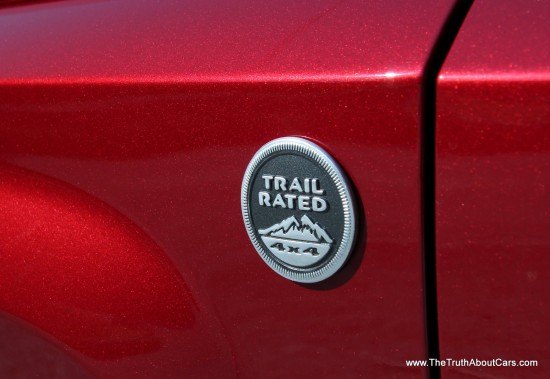



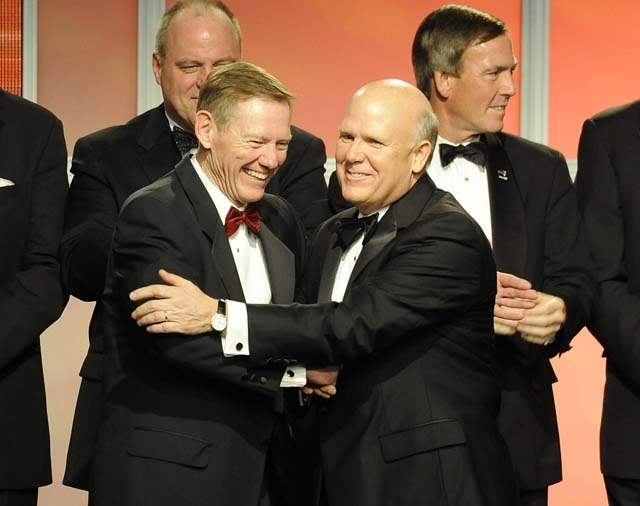
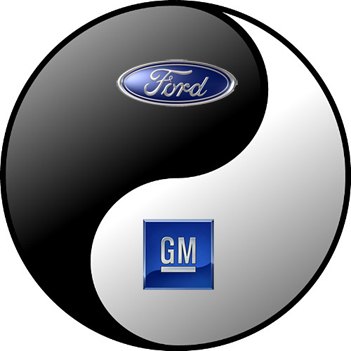

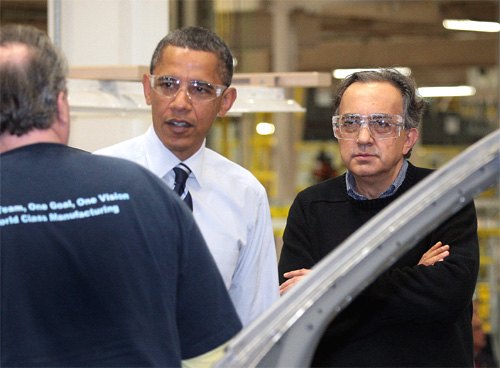
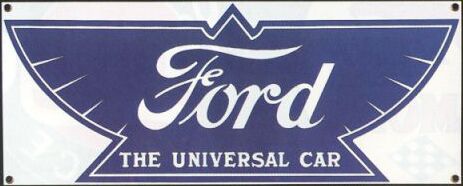

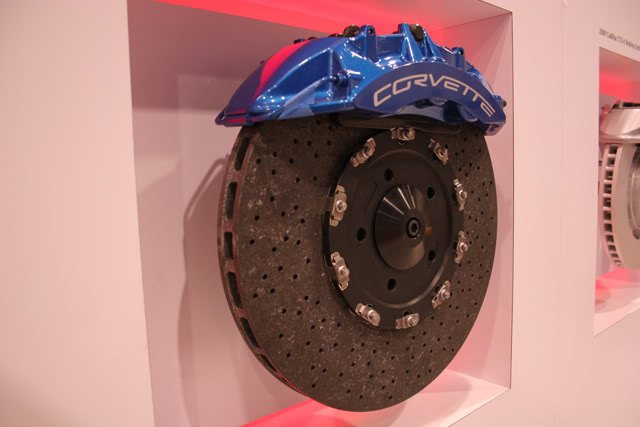












Recent Comments